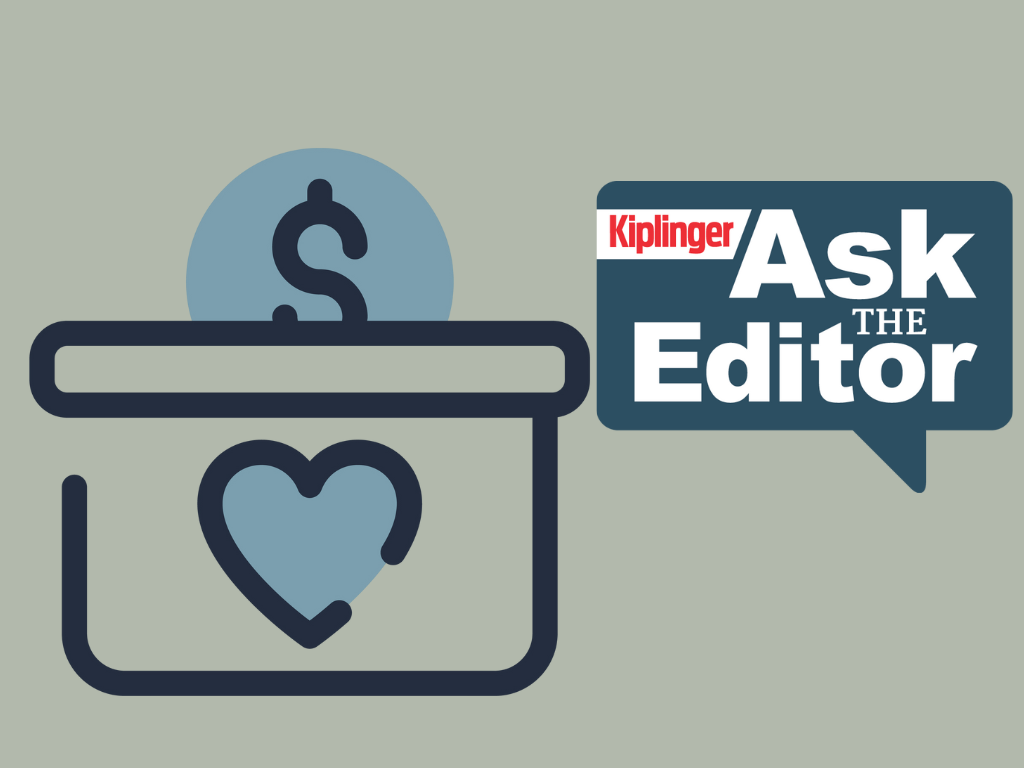4 Better Bets Than the Twitter IPO
These stocks have suffered since going public, but their prospects are starting to look up.

Profit and prosper with the best of Kiplinger's advice on investing, taxes, retirement, personal finance and much more. Delivered daily. Enter your email in the box and click Sign Me Up.
You are now subscribed
Your newsletter sign-up was successful
Want to add more newsletters?

Delivered daily
Kiplinger Today
Profit and prosper with the best of Kiplinger's advice on investing, taxes, retirement, personal finance and much more delivered daily. Smart money moves start here.

Sent five days a week
Kiplinger A Step Ahead
Get practical help to make better financial decisions in your everyday life, from spending to savings on top deals.

Delivered daily
Kiplinger Closing Bell
Get today's biggest financial and investing headlines delivered to your inbox every day the U.S. stock market is open.

Sent twice a week
Kiplinger Adviser Intel
Financial pros across the country share best practices and fresh tactics to preserve and grow your wealth.

Delivered weekly
Kiplinger Tax Tips
Trim your federal and state tax bills with practical tax-planning and tax-cutting strategies.

Sent twice a week
Kiplinger Retirement Tips
Your twice-a-week guide to planning and enjoying a financially secure and richly rewarding retirement

Sent bimonthly.
Kiplinger Adviser Angle
Insights for advisers, wealth managers and other financial professionals.

Sent twice a week
Kiplinger Investing Weekly
Your twice-a-week roundup of promising stocks, funds, companies and industries you should consider, ones you should avoid, and why.

Sent weekly for six weeks
Kiplinger Invest for Retirement
Your step-by-step six-part series on how to invest for retirement, from devising a successful strategy to exactly which investments to choose.
Here's our advice for Twitter's initial public offering, summed up in less than 140 characters: Don't invest in the Twitter IPO. It's not that Twitter's stock -- likely to be priced at $17 to $20 per share, according to regulatory filings on October 24 -- won't turn out to be a good investment. Maybe it will. Or maybe it won't. Time will tell. But our advice for any IPO is to wait at least 90 days before buying in. That allows enough time for the hype to die down and rational analysis of a company’s business prospects to take over.
This approach paid off handsomely with the Facebook (symbol FB) IPO. The stock debuted on May 18, 2012, at $38. By session's end its price had gained just 23 cents, defying widespread predictions of a massive first-day pop. Three months after the IPO, Facebook was down to $20. Opportunistic investors who bought at that point have since enjoyed a 160% return (all prices as of October 17).
IPO expert Josef Schuster says the risk for individual investors is getting caught up in the buzz about hot IPOs that later crash while overlooking less attractive “cold deals.”
From just $107.88 $24.99 for Kiplinger Personal Finance
Become a smarter, better informed investor. Subscribe from just $107.88 $24.99, plus get up to 4 Special Issues

Sign up for Kiplinger’s Free Newsletters
Profit and prosper with the best of expert advice on investing, taxes, retirement, personal finance and more - straight to your e-mail.
Profit and prosper with the best of expert advice - straight to your e-mail.
“Our great performers are the boring IPOs that the individual investor may have neglected --, like HCA Holdings (HCA), which didn’t do anything for a long time and is now trading at all-time highs," says Schuster, who runs a Chicago-based IPO research firm, IPOX Schuster LLC. "Dollar General (DG) — it wasn’t a ‘hot IPO.’ It didn’t do anything on the first day. But it went up over the long run.”
Schuster created an index of stocks that come onto the market as IPOs or corporate spinoffs. The index is the basis for an exchange-traded fund, First Trust US IPO Index (FPX). Schuster’s rules for his index specify that an IPO will be added no sooner than six trading days after it debuts to avoid the volatility of the first few sessions.
Consider investing in the ETF for broad exposure to the IPO market. The fund is up 38% year to date — better than the 24% return of Standard & Poor’s 500-stock index.
Looking for individual stocks? A number of IPOs that have turned cold since their debuts within the past couple of years may intrigue investors with an appetite for out-of-favor shares. Here are four worth considering:
SeaWorld Entertainment (SEAS) went public in April with a first-day splash befitting Shamu’s owner. Ahead of the IPO it posted 2012 sales growth of more than 7%, better than Cedar Fair (FUN) and Six Flags Entertainment (SIX). In its first report as a public company, however, SeaWorld’s earnings came in below analysts’ forecasts. Investors were spooked at the news of a 9.5% decline in attendance in the second quarter of 2013. The shares, at $29.57 now trade below their first-day close and are priced at 22 times estimated 2014 earnings. SeaWorld’s stock yields 2.7%.
Poor weather in the second quarter hurt attendance at nearly all SeaWorld parks. But the visitors who did attend spent more to get in, says Barclays Capital analyst Felicia Hendrix, and spent more on concessions once they were inside, boosting revenue per attendee by 6.7%. Hendrix says the company’s second-half performance will influence the share price in the short term. In the long run the company’s strong brands, including Busch Gardens and the namesake SeaWorld parks, will keep its coffers brimming.
TRI Pointe Homes (TPH) and Ply Gem Holdings (PGEM) went public earlier this year as the U.S. housing market showed signs of life post-recession. Each stock gained more than 10% on the first day of trading. More recently, though, they’ve both been caught up in fears that rising mortgage rates will stop the housing rebound in its tracks.
TRI Pointe is a homebuilder operating exclusively in Colorado and its home state of California. Analyst Steve Stelmach, of FBR Capital Markets, who has a “buy” rating on the stock, says the company has a strong portfolio of land and is generating orders at a better-than-expected pace. At $13.92, shares are well below Stelmach’s $24 price target.
Ply Gem sells construction products to builders, including siding, windows and doors. Expectations of a slowing recovery in homebuilding recently prompted analyst Daniel Oppenheim, of Credit Suisse, to lower the target price that accompanies his “buy” rating to $21 — 43% above today’s levels of $14.68.
Millennial Media (MM) was a hot IPO, jumping 92% on its first day of trading in March 2012. But investors soured quickly as the provider of mobile advertising fell short of some analysts’ financial forecasts in its first report as a public company. Today, at $6.88, it trades at one-fourth its all-time high.
Millennial Media has big competition — Apple (AAPL) and Google (GOOG) — but it claims to be the largest company that isn’t affiliated with a single operating system or set of mobile devices. It’s bulking up, buying privately held competitor Jumptap in a stock-and-cash deal initially valued at about $200 million.
The risk of the large acquisition, coupled with recent financial results that missed management’s forecast, has led a number of analysts to assign “hold” ratings. But analysts also say there’s plenty of potential in a company that reported a 45% gain in sales in the second quarter. “The stock’s current valuation likely does not give enough credit for expected growth,” says Michael Graham, of Canaccord Genuity, whose 12-month target price of $10 represents a gain of 45% from today’s levels.
Profit and prosper with the best of Kiplinger's advice on investing, taxes, retirement, personal finance and much more. Delivered daily. Enter your email in the box and click Sign Me Up.

David Milstead joined Kiplinger Personal Finance as senior associate editor in May 2025 after 15 years writing for Canada's Globe and Mail. He's been a business journalist since 1994 and previously worked at the Rocky Mountain News in Denver, the Wall Street Journal, and at publications in Ohio and his native South Carolina. He's a graduate of Oberlin College.
-
 Ask the Editor: Questions on Tax Breaks for Caregivers
Ask the Editor: Questions on Tax Breaks for CaregiversAsk the Editor In this week's Ask the Editor Q&A, Joy Taylor answers questions on tax breaks for caregivers
-
 Are You Making These Savings Mistakes?
Are You Making These Savings Mistakes?Avoiding these common mistakes can help you build a foundation of wealth while not leaving thousands of dollars on the table.
-
 I See the Freedom in My Friend's Late-Life Divorce
I See the Freedom in My Friend's Late-Life DivorceHaving gone through a divorce myself, I know it can bring financial and emotional peace in the long run.
-
 AI Unwind Takes 2% Off the Nasdaq: Stock Market Today
AI Unwind Takes 2% Off the Nasdaq: Stock Market TodayMarkets are paying more and more attention to hyperscalers' plans to spend more and more money on artificial intelligence.
-
 If You'd Put $1,000 Into AMD Stock 20 Years Ago, Here's What You'd Have Today
If You'd Put $1,000 Into AMD Stock 20 Years Ago, Here's What You'd Have TodayAdvanced Micro Devices stock is soaring thanks to AI, but as a buy-and-hold bet, it's been a market laggard.
-
 Nasdaq Drops 172 Points on MSFT AI Spend: Stock Market Today
Nasdaq Drops 172 Points on MSFT AI Spend: Stock Market TodayMicrosoft, Meta Platforms and a mid-cap energy stock have a lot to say about the state of the AI revolution today.
-
 S&P 500 Tops 7,000, Fed Pauses Rate Cuts: Stock Market Today
S&P 500 Tops 7,000, Fed Pauses Rate Cuts: Stock Market TodayInvestors, traders and speculators will probably have to wait until after Jerome Powell steps down for the next Fed rate cut.
-
 S&P 500 Hits New High Before Big Tech Earnings, Fed: Stock Market Today
S&P 500 Hits New High Before Big Tech Earnings, Fed: Stock Market TodayThe tech-heavy Nasdaq also shone in Tuesday's session, while UnitedHealth dragged on the blue-chip Dow Jones Industrial Average.
-
 Dow Rises 313 Points to Begin a Big Week: Stock Market Today
Dow Rises 313 Points to Begin a Big Week: Stock Market TodayThe S&P 500 is within 50 points of crossing 7,000 for the first time, and Papa Dow is lurking just below its own new all-time high.
-
 Nasdaq Leads Ahead of Big Tech Earnings: Stock Market Today
Nasdaq Leads Ahead of Big Tech Earnings: Stock Market TodayPresident Donald Trump is making markets move based on personal and political as well as financial and economic priorities.
-
 11 Stock Picks Beyond the Magnificent 7
11 Stock Picks Beyond the Magnificent 7With my Mag-7-Plus strategy, you can own the mega caps individually or in ETFs and add in some smaller tech stocks to benefit from AI and other innovations.